According to the leader of the Department of Education and Training of Ho Chi Minh City, the regulations on collection fees are a legal corridor for schools to transparently and publicly implement educational activities to serve and provide for students; at the same time, it is also a mechanism for society to monitor, detect and promptly handle units that do not seriously implement.

Ho Chi Minh City regulates revenues and collection levels, revenue and expenditure management mechanisms for services serving and supporting educational activities.
PHOTO: NHAT THINH
DO NOT INCREASE MORE THAN 15%
Resolution 18 of the Ho Chi Minh City People's Council stipulates the revenues and collection levels, and the revenue and expenditure management mechanism for services serving and supporting educational activities of public educational institutions. This school year, the City has a list of 9 revenues for services serving and supporting educational activities (organizing boarding services, breakfast services, after-school childcare, air conditioning services, etc.) and 15 other service revenues in the field of education and training, including revenues for organizing school programs and serving individual students such as breakfast, boarding meals, drinking water, etc.
Ms. Nguyen Thi Nhat Hang, Deputy Director of the Department of Education and Training of Ho Chi Minh City, requested that schools need to base on documents guiding the collection and use of tuition fees and other revenues, documents guiding the implementation of school program content; documents on tuition exemption, reduction and support policies... to make revenue and expenditure estimates. At the same time, they must be made public to parents before implementation and ensure full financial regimes according to regulations. School principals are not allowed to generate any revenues outside of regulations.
The Deputy Director of the Department of Education and Training also requested the People's Committees of wards, communes and special zones to consider service fees and other fees other than tuition fees based on the operational plan, revenue and expenditure estimates and proposed collection levels of each educational institution. Agree on a collection level framework appropriate to the actual situation of each locality and the practice of each educational institution before implementation.
Mr. Tran Khac Huy, Head of the Financial Planning Department, Department of Education and Training, noted that the collection rates specified in the resolution are the maximum collection rates. Based on the actual situation and needs of students, schools will agree with parents on specific collection rates but not exceeding the collection rates specified in this resolution and not being 15% higher than the collection rates implemented in the 2024-2025 school year.
In case the educational institution has a plan to organize the provision of additional services to serve and support new educational activities (not yet arising in the 2024-2025 school year), these revenues must be surveyed and agreed upon with parents before implementation. The level of revenue from services to serve and support educational activities must be commensurate with the quality of services provided to learners and must be consistent with the basis, principles, and methods of pricing goods and services according to the law on prices.
Other service fees for individual students must be consistent with local realities. If there is an increase compared to the previous year, it must be explained, made public and transparent, and have the consent of parents.
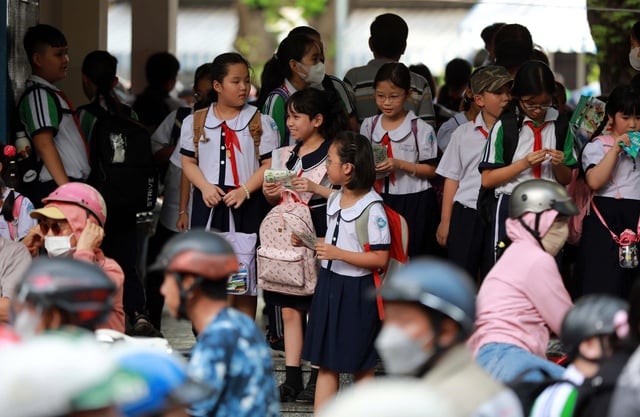
Students entering the new school year, parents are concerned about school revenues
Photo: Ngoc Duong
Unified tuition fees for schools in the area
Talking to Thanh Nien reporter, Mr. Hoang Dinh Ke, Head of the Department of Culture and Society of Tam Thang Ward (HCMC), said that based on the implementation instructions of the Department of Education and Training, the ward has requested 16 public schools to set up a collection fee. After that, the ward will evaluate and issue a unified collection fee framework in the area, then the schools will proceed to organize the implementation for the 2025-2026 school year.
Ms. Nguyen Thi Minh Chau, Principal of Ly Thanh Tong Secondary School (Chanh Hung Ward, Ho Chi Minh City), said that the school has developed and proposed the collection fees for this school year to the ward according to regulations. Compared to the previous school year, Ly Thanh Tong School proposed to increase the meal fee by 1,000 VND (from 34,000 to 35,000 VND/meal), and the boarding service fee by 20,000 VND (from 220,000 to 240,000 VND/month).
According to Ms. Chau, the proposed increase in the above two items fluctuates below 5 - 10%, within the city's regulations. However, according to the regulations, if there is an increase compared to the previous year, it must be explained, made transparent and have the consent of the students' parents, so the school has reported the salary of 5 service staff and 6 kitchen staff to propose an increase in boarding service fees.
"The school sets the above fee level to have funding to support retaining this team after each school year so that they can return to provide boarding services for students," said Ms. Chau.
The leaders of the Department of Education and Training also requested that wards, communes, and special zones urgently issue guidelines on revenue and expenditure for educational institutions according to their management levels. Based on the operational plan, revenue and expenditure estimates, and proposed revenue levels of each educational institution, consider service revenues, educational support services, and other revenues other than tuition fees in accordance with regulations. From there, agree on a revenue framework appropriate to the actual situation of each locality before implementation.
Strictly handle principals who collect and spend money in violation of regulations.
The Ho Chi Minh City Department of Education and Training established inspection teams to inspect the revenue and expenditure situation at the beginning of the 2025-2026 school year at schools according to the management hierarchy, promptly correcting the situation of over-collection or illegal collection of fees. There are strict sanctions for principals of educational institutions that collect and spend money in violation of regulations.
Mr. Tran Khac Huy also said that, through grasping the situation in Ho Chi Minh City recently, there has been information about a few schools that have not properly implemented the instructions on organizing the collection of fees at the beginning of the school year as well as in the work of mobilizing sponsorship at public educational institutions, creating negative public opinion towards the education and training sector. The Department of Education and Training requests that all fees must be fully and publicly announced in writing by the school to parents and students. Do not let the parent representative committee implement the collection contents of the unit, absolutely do not change the name and arbitrarily add any additional fees that arise outside of the regulations. Note to extend the time for implementing the fees, do not organize the collection of many fees at the same time and fully comply with the financial management regimes as prescribed.
Regarding the mobilization, reception, management and use of funding sources, the Head of the Financial Planning Department requires schools to plan to mobilize funding and clearly define the content, purpose, beneficiaries, budget estimates and implementation plans for activities requiring funding. The mobilization plan must be approved by the People's Committee of the commune, ward or Department of Education and Training (according to the management hierarchy) before organizing the mobilization and in the spirit of voluntariness, not equalization, and not "abusing funding" to become a mandatory revenue.
It is strictly forbidden to take advantage of the name of the parents' representative committee to collect fees outside of regulations.
How to collect taxes in the old Binh Duong and Ba Ria-Vung Tau areas?
Mr. Tran Khac Huy said that with the amount of money that the old resolution of the People's Council of Binh Duong and Ba Ria-Vung Tau provinces to support students in the two regions is still in effect, this school year will still be implemented until it is abolished or there is a replacement resolution.
Regarding the revenue in the list of school programs, it is not necessary to try to implement all the contents. Organizing educational activities in the school program must first be based on the plan, professional guidance and on the basis of the needs of learners, the conditions of facilities and teaching of the school. "It is not that last year we did not organize, but this year we see that the resolution has a list of regulations, so we must implement it at all costs," Mr. Huy emphasized.
Source: https://thanhnien.vn/cac-khoan-thu-dau-nam-hoc-truong-phai-giai-trinh-neu-tang-muc-thu-185250922220114379.htm



![[Photo] Cutting hills to make way for people to travel on route 14E that suffered landslides](https://vphoto.vietnam.vn/thumb/1200x675/vietnam/resource/IMAGE/2025/11/08/1762599969318_ndo_br_thiet-ke-chua-co-ten-2025-11-08t154639923-png.webp)












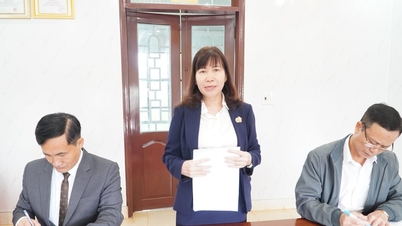

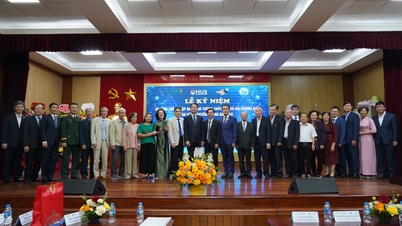



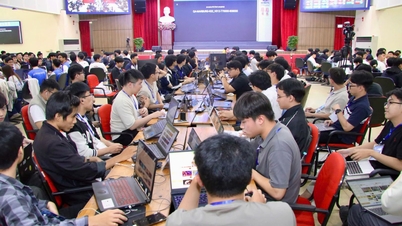

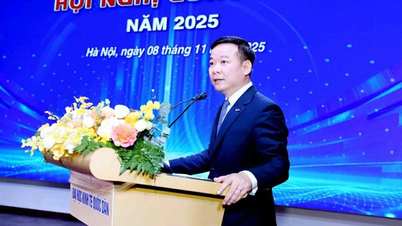











![[Photo] "Ship graveyard" on Xuan Dai Bay](https://vphoto.vietnam.vn/thumb/1200x675/vietnam/resource/IMAGE/2025/11/08/1762577162805_ndo_br_tb5-jpg.webp)







![[Video] Hue Monuments reopen to welcome visitors](https://vphoto.vietnam.vn/thumb/402x226/vietnam/resource/IMAGE/2025/11/05/1762301089171_dung01-05-43-09still013-jpg.webp)

































































Comment (0)